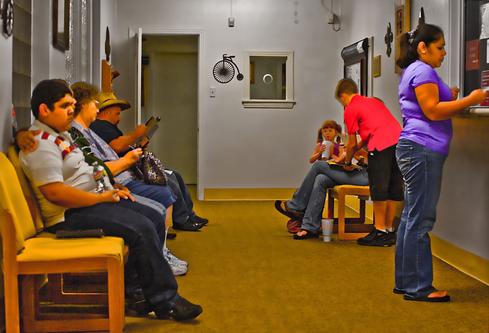As Doctors Embrace Tablets, Management Headaches Grow
Mobile devices are just what the doctor ordered, but not all healthcare providers' IT departments have the right tools to manage them.


10 Waiting Room Apps That Engage Patients
10 Waiting Room Apps That Engage Patients (Click image for larger view and slideshow.)
Clinicians increasingly are taking tablets to their patient encounters, and that's translating into new opportunities and new headaches for IT professionals.
As healthcare providers use smartphones and tablets to improve patient engagement, enhance care, and boost efficiency, management and security challenges increase. But healthcare providers are paying more attention -- and spending more resources -- to address these issues, according to a recently released study by HIMSS Analytics. Of the 170 healthcare and IT professionals surveyed, 59% have a mobile technology in place, and another 29% are developing a plan to cope with the proliferation of smartphones and tablets. Because 83% of physicians use mobile technology to provide patient care, the study found, IT must manage and secure these devices.
"When I look at our clinicians, healthcare is a mobile workforce," said Mony Weschler, chief strategist at Montefiore Medical Center in the Bronx, N.Y., during an interview at HIMSS14. "Clinicians don't sit at a desk and roll patients by them. Every second counts."
IT must balance users' desire for immediate, simple access to data along with government mandates, best-practices, and organizational requirements for securing data. Indeed, 95% of organizations use at least one security tool, generally passwords, to protect data. That suggests 5% are leaving valuable, private information unsecured and subject to HIPAA violations and breach of patient trust.
[Learn more about health IT security risks. See Healthcare Devices: Security Researchers Sound Alarms.]
Fletcher Allen Health Care's IT team must balance doctors' desire for fast, simple access to records with the technology team's requirement for security, said John McConnell, enterprise architect at the Burlington, Vt., medical center, during an interview at HIMSS14. The 560-bed hospital relies extensively on a VMware virtualized desktop environment, Dell thin clients, and iPads for its 7,000-plus users and 46,000-plus devices.
"Quite frankly, I don't think we have a physician at Fletcher Allen who doesn't own an iPhone or an iPad," said McConnell.
Entering passwords, especially different passwords across multiple applications, is time consuming. In the case of a pediatric ear, nose, and throat surgeon, the additional 20 minutes per day adds up to one fewer surgery performed, said McConnell. It means a nurse spends less time with patients, he said. Reducing the complexity of passwords while maintaining security was key.
In Fletcher Allen's case, the hospital chose Imprivata OneSign, single sign-on technology that uses a four-digit PIN integrated into the hospital's Epic EHR and badge security system, which it's rolling out to all departments. "It's been a huge time savings," said McConnell. "We can't keep up with demand."
Employees must use their badge for the multi-factor authentication to work, but Fletcher Allen mandates employees must have their badge on at all times anyway. If they forget their badge, they have to return home to collect it, McConnell said. Since badges were already a work requirement, they weren't onerous for OneSign system adoption, he added.
Mobile devices are not solely for clinical staff. Providers are exploring ways to integrate mobile-health products into EHR systems to add data, build relationships, and extend value.
"We are looking at ways to get more patients more engaged in care via remote devices," said Doug Lauterbach, assistant VP of technology and CTO at Ochsner Health System, during an interview at HIMSS14. This includes feeding data back into the Epic EHR via scales, glucometers, blood pressure cuffs, and other monitors. "One of the greatest impacts to managing chronic conditions is patient engagement. The more we can do through technology to help them and keep them engaged is better for everybody."
Download Healthcare IT In The Obamacare Era, the InformationWeek Healthcare digital issue on changes driven by regulation. Modern technology created the opportunity to restructure the healthcare industry around accountable care organizations, but ACOs also put new demands on IT.
About the Author
You May Also Like






